A Northern Territory exotic tropical fruit grower is predicting a significant increase of its durian volumes this year.
Han Shiong Siah manages Tropical Primary Products (TPP), which produce durians, jackfruit, pomelos and mangoes in Humpty Doo.
“The durian season is about to start," Mr Siah said. “We are looking at another increase into production to about 30 tonnes this year, from last year records of 20 tonnes. The season has started with it peaking in early November and finish about December. With jackfruit, in theory it is a year-round crop, however we only harvest jackfruit from May to September. The season usually ends when damage pressure from Magpie Geese get beyond control. This year we have a smaller than normal crop with 60 tonnes of jackfruit sent so far, down from the usually 90 tonnes.”
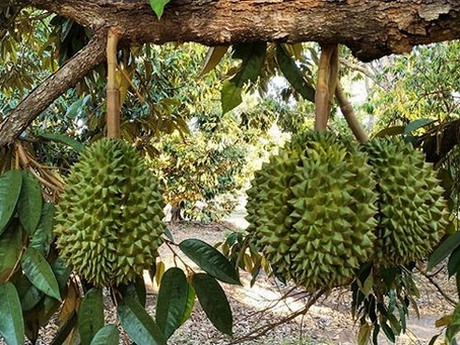
Each of the fruits have their own uniqueness, according to Mr Siah. The jackfruit is sweet, can be either crunchy or soft, with a yellow, orange or red flesh colour, with the smell similar to fruit salad. While the durian is a bit more distinctive. It is sweet, with custard-like flesh, and ranges from pale yellow to dark orange.
"The taste is sweet custard with some variety ending with a bitter note, which is a positive note for the customers – the more bitter the better," Mr Siah said. "The smell is hard to describe, but unique, I did read a botanist once describe durian as a bland of old sock and strong garlic. My wholesale agent said once, his customers just follow their nose to the stands. Best way to overcome the smell is to block the nose and put durian flesh in the mouth. After 3 trials, most customers adapted and loved the fruit and smell."
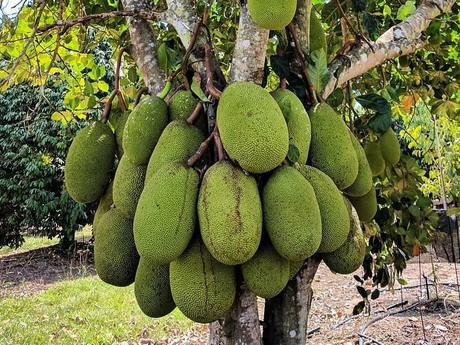
Another major produce item is mangoes. This year's season is almost finished, with last variety being harvested now. Tropical Primary Products have its own breeds of mangoes: TPP1, TPP4, TPP5 and TPP6. TPP1 was bred in-house in the early 1990s with PBR registration by the end of that decade. Normally, 60,000 trays a year are produced, with an average 23 fruit/7kg tray.
"TPP1 is our staple mango, with majority of our harvest is made up of them," Mr Siah said. "This year has been an unusual, with harvest finish early and volumes is down by 40 per cent. TPP1 was originally sold in Asian grocers, however in the last 10 years it has been sold on Woolworths and Coles shelf under TPP1 mangoes. TPP1 mango is described as an Asian long mango with a hook tail, and it is eaten ripe. It is known to be a good introduction to mangoes instead of the traditional mangoes such as KP and R2E2."
The TPP4 is large mango, between 1.2kg and 1.5kg, which can be either eaten green as a sweet green crunchy fruit, or can be left to ripen and eaten ripe. It is a late season variety, which can run into December, but volumes are smaller, with only around 6,000 trays projected. TPP5 is a new generation mango with very good shelf life, which can stand cold storage up to 1 months without losing firmness – however it is a less sweet fruit. TPP6 is another next generation fruit which has the flavour of KP with hint of an Asian variety and the company also grows R2E2 and a number of typical Asian sweet green eating mangoes for Asian markets."
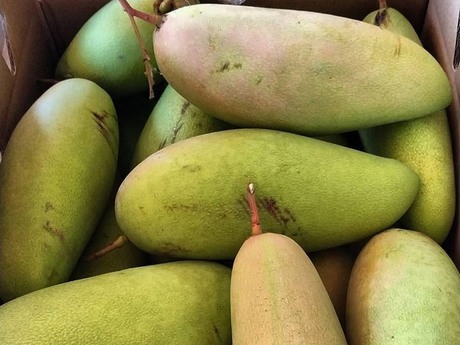
Tropical Primary Products have been a family owned and operated business since 1987, when Mr Siah moved to Australia from Malaysia. With his two parents, the three operate the company full time, and manage about 350 acres of production horticulture.
Mr Siah adds that producing exotic tropical fruit in Australia is a small industry, but it is growing with new varieties and even species of fruit that might not be typically grown here. There are a few growers in Northern Queensland which grow durian, jackfruit, lychees, logan, dragon fruit and other exotic fruits.
"Being close to Asia, there is a fair bit of Asian demographic in major capital cities who craves Asian fruit they miss at home," he said. "Being in Australia, it is unique, we have two type of environment, the tropics and the temperate area. Means that tropical fruit can be grown up in northern part of Australia and freighted down to southern states for sales. I am not too sure what the size of my markets. I hope that TPP brand is well known in ‘Asian Demographic Areas’ of the southern capital cities."
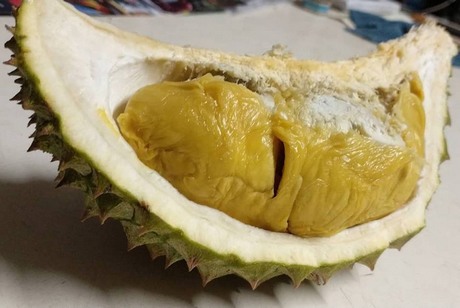
The company supplies to the domestic wholesale markets in Sydney, Melbourne and Adelaide. From there, it is sold on to green grocers, Asian shops, and major supermarket chains (TPP1 mangoes only).
The company's pomelo production was affected earlier this year, with the outbreak of citrus canker. It was in the peak of the season in April 2018, with about 10 out of 40 tonnes of pomelos left on our trees for the season, when the trees were inspected, and farm was clear of citrus canker.
"We had to implement new biosecurity plans for the farms," Mr Siah said. "In June 2018, we heard about possible chance to be able to re started shipment to southern states. After a month of waiting, we also decided that the pomelos where almost over ripe and was going to cut fruit down and mulch it into the ground."
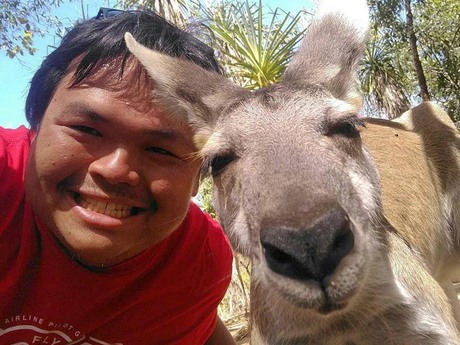
But at the 11th hour, Mr Siah says a protocol was approved by southern states, and TPP worked with NT Quarantine on the protocol to send the shipment to the Melbourne Market at the end of July, a full three months after market access was restricted. Sydney Market access followed four days later.
"Being the first farm to resume marketing citrus, it was a proud moment that proved nothing is impossible and that each biosecurity state organisation has full confidence in NT Quarantine in controlling this outbreak of citrus canker,” he said.
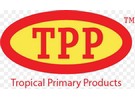 For more information
For more information
Han Shiong Siah
Tropical Primary Products
Phone: +61 8 8988 8032
admin@tropicalprimary.com.au
www.tropicalprimary.com.au
